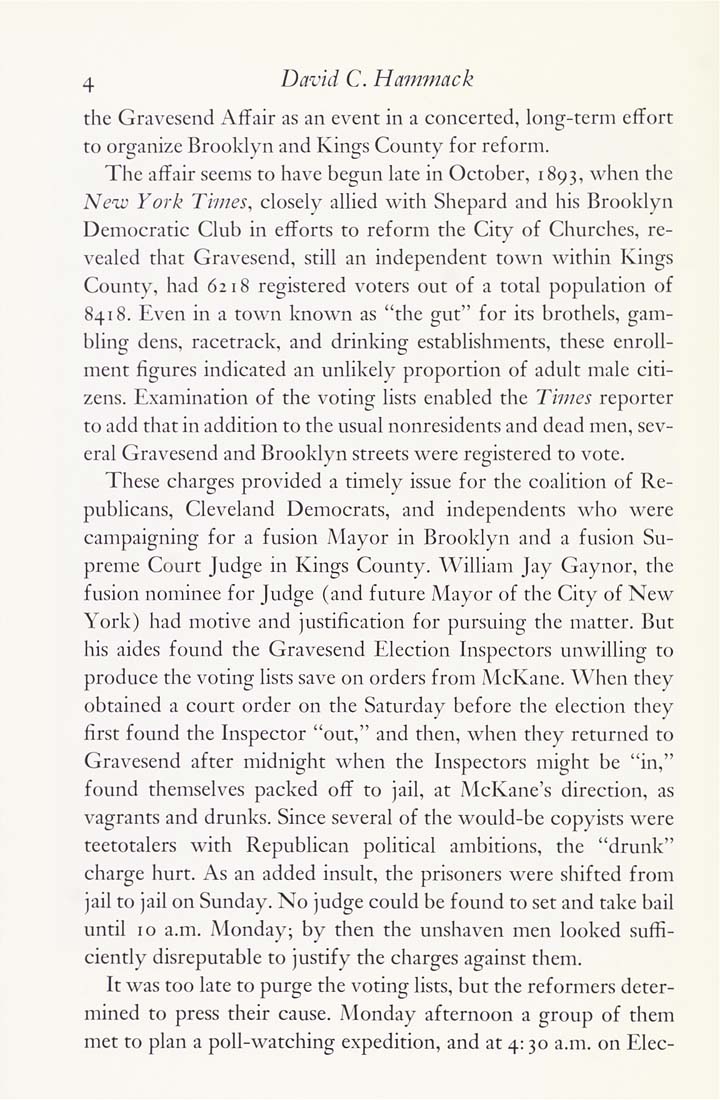Columbia Library columns (v.23(1973Nov-1974May))
(New York : Friends of the Columbia Libraries. )
|
||
|
|
|
|
| v.23,no.3(1974:May): Page 4 |

4 David C. Haimnack the Gravesend Affair as an event in a concerted, long-term effort to organize Brooklyn and Kings County for reform. The affair seems to have begun late in October, 1893, when the New York Times, closely allied with Shepard and his Brooklyn Democratic Club in efforts to reform the City of Churches, re¬ vealed that Gravesend, still an independent town within Kings County, had 6218 registered voters out of a total population of 8418. Even in a to«'n known as "the gut" for its brothels, gam¬ bling dens, racetrack, and drinking establishments, these enroll¬ ment figures indicated an unlikely proportion of adult male citi¬ zens. Examination of the voting lists enabled the Times reporter to add that in addition to the usual nonresidents and dead men, sev¬ eral Gravesend and Brooklyn streets were registered to vote. These charges pro\ided a timely issue for the coalition of Re¬ publicans, Cleveland Democrats, and independents who were campaigning for a fusion Mayor in Brooklyn and a fusion Su¬ preme Court Judge in Kings County. William Jay Gaynor, the fusion nominee for Judge (and future Mayor of the City of New Y'ork) had motive and justification for pursuing the matter. But his aides found the Gravesend Election Inspectors unwilling to produce the voting lists save on orders from McKane. When they obtained a court order on the Saturday before the election they first found the Inspector "out," and then, when they returned to Gravesend after midnight when the Inspectors might be "in," found themselves packed off to jail, at McKane's direction, as vagrants and drunks. Since several of the would-be copyists were teetotalers with Republican political ambitions, the "drunk" charge hurt. As an added insult, the prisoners were shifted from jail to jail on Sunday. No judge could be found to set and take bail until 10 a.m. Monday; by then the unshaven men looked suffi¬ ciently disreputable to justify the charges against them. It was too late to purge the voting lists, but the reformers deter¬ mined to press their cause. Monday afternoon a group of them met to plan a poll-watching expedition, and at 4:30 a.m. on Elec- |
| v.23,no.3(1974:May): Page 4 |







